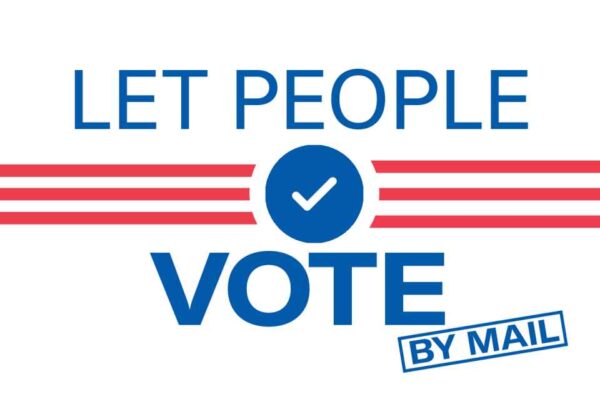ACLU and NAACP LDF File Federal Lawsuit Challenging South Carolina Requirements That Put Voters at Risk During COVID-19 Pandemic
COLUMBIA, S.C. — The American Civil Liberties Union, ACLU of South Carolina, and NAACP Legal Defense and Educational Fund filed a federal lawsuit today over South Carolina’s failure to take action to ensure all eligible voters can vote by mail during the COVID-19 pandemic — even for its fast-approaching June 9 statewide primary elections.
The groups are challenging a state requirement that forces people who vote absentee to have a third-party witness signature on their ballot envelope, as well as an “excuse” requirement that fails to provide an accommodation to allow all eligible voters to vote absentee during the pandemic.
Even if voters are allowed to vote absentee “because of injury or illness” that keeps them at home, election officials have rejected the view that this currently “include[s] self-isolating due to a pandemic.”
Requiring voters to be physically present at their traditional polling places during the COVID-19 outbreak — where they will be congregating and waiting in line with others in order to vote — is contrary to the advice of public health experts. In addition, in the midst of a pandemic, the witness requirement also puts people’s health at risk.
“No one should be forced to choose between their life and their vote. It is a false choice. South Carolina can simultaneously keep the public safe and protect democracy, but is refusing to do so. Removing these requirements in the middle of a pandemic is a common-sense solution that protects people’s health and their right to vote,” said Adriel Cepeda Derieux, a staff attorney with the ACLU’s Voting Rights Project.
The case was brought on behalf of Family Unit Inc. and several individuals.
“Structural racism has resulted in the COVID-19 crisis having a devastating and disproportionate impact on African-American people in South Carolina. Yet, state law restrictions on absentee voting will needlessly force many African-American and other voters to vote in-person in contradiction of the governor's shelter in place order,” said Deuel Ross, senior counsel at LDF. “Similarly, the state's requirement that a witness sign an absentee ballot will endanger vulnerable voters by forcing them to leave their homes and interact with others. Election officials must act to prevent the spread of COVID-19 by both broadly expanding absentee voting options and making in-person voting as safe and accessible as possible.”
The groups are asking the court to block the state from enforcing the requirements while COVID-19 transmission is occurring; issue guidance instructing local election officials to count otherwise validly cast absentee ballots that are missing a witness signature for South Carolina’s primary and general elections in 2020; and conduct a public information campaign informing voters about the elimination of the witness and excuse requirements at this time.
“Inevitably, the COVID-19 pandemic will result in voter suppression in 2020 elections unless we put preventative measures into place now. Without action from the courts, South Carolina’s June primaries will force people to choose between their health and their right to vote, a decision no one should have to make,” said Susan Dunn, legal director at the ACLU of South Carolina.
The lawsuit, Thomas v. Andino, was filed in U.S. District Court in Columbia, S.C.
Complaint: /legal-document/thomas-v-andino-complaint
Case details: /cases/thomas-v-andino
